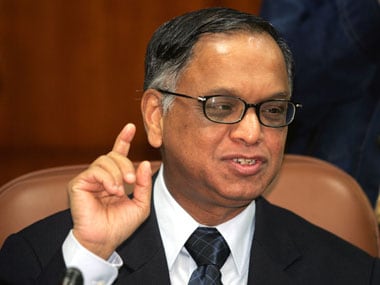Between 2014-15 and November 2017: Govt funding for various development schemes was Rs 68,270 crore
Uttar Pradesh, Tamil Nadu, Madhya Pradesh, Maharashtra and Gujarat are the biggest beneficiaries in terms of funds allocated for schemes such as Swachh Bharat Mission, Smart Cities Mission and PMAY (Urban)
 The details of key schemes and the financial support offered by states and the Centre under some of the flagship schemes are given below.(Illustration: C R Sasikumar)
The details of key schemes and the financial support offered by states and the Centre under some of the flagship schemes are given below.(Illustration: C R Sasikumar)
For overall urban development across the country, the Central government has been supporting the states in improving governance, management and development of urban areas through schemes and missions such as Swachh Bharat Mission, Pradhan Mantri Awas Yojana (Urban), Smart Cities Mission, Atal Mission For Rejuvenation and Urban Transformation (AMRUT), National Heritage City Development and Augmentation Yojana (HRIDAY) and North Eastern Region Urban Development Programme (NERUDP). According to data from the Ministry of Housing and Urban Affairs, Rs 68,270 crore was released under these schemes across the country from 2014-15 till November 2017. Uttar Pradesh, Tamil Nadu, Madhya Pradesh, Maharashtra and Gujarat emerge as the biggest beneficiaries of the government funding. The details of key schemes and the financial support offered by states and the Centre under some of the flagship schemes are given below.
Swachh Bharat Mission
One of the flagship schemes of Prime Minister Narendra Modi, the Swachh Bharat Mission has seen about Rs 6,000 crore being pumped into the project since 2014-15 for construction of individual household toilets, community and public toilets, apart from solid waste management, information, education & communication and public awareness, and capacity building. The majority of the funds released are contributed by governments of respective states and Union territories. Initially, the project was funded by a 0.5 per cent Swachh Bharat cess, which was later abolished when the goods and services tax regime kicked in from July 1. Further, corporates also contribute to the Swachh Bharat Kosh as part of their corporate social responsibility (CSR):
# The total contribution to the Swachh Bharat Kosh as part of CSR expenditure as reported by the companies for the years 2014-15 and 2015-16, as per the filings up to March 31, 2017, was Rs 94.57 crore and Rs 321.03 crore, respectively.
# Among the various heads, the highest amount of funds has been allocated by the government on solid waste management. Of the total amount, Rs 2,394 crore has been released over the last four financial years for the purpose.
# This was followed by Rs 2,257 crore being released for construction of individual household toilets.
# In 2017-18 so far, Uttar Pradesh released the maximum funds under the Swachh Bharat Mission at Rs 354.13 crore, followed by Madhya Pradesh at Rs 291.87 crore, and Maharashtra at Rs 240.17 crore.
# While Madhya Pradesh and Maharashtra released the most money for solid waste management projects, Uttar Pradesh released the most for individual household toilets during 2017-18.
Pradhan Mantri Awas Yojana (Urban)
The scheme, launched in 2015, aims to provide assistance to states and Union territories in addressing housing requirement of the urban poor through four verticals – “in situ” slum redevelopment with participation of private developers; promotion of affordable housing for economically weaker sections through credit-linked subsidy; affordable housing in partnership with public and private sector; subsidy for beneficiary-led individual house construction or enhancement. Various projects under the mission are approved and implemented by governments of state or union territories or urban local bodies:
# In 2017-18 so far, the Centre released Rs 4,950.21 crore under the scheme, with maximum funds being released to Tamil Nadu at Rs 903.91 crore, followed by Madhya Pradesh at Rs 809.09 crore and Gujarat at Rs 480.58 crore.
# The trend was consistent in 2016-17, with Rs 4,606.26 crore being released. Tamil Nadu topped last year too, receiving Rs 634.60 crore in central assistance under the scheme, followed by Gujarat at Rs 614.05 crore, and Maharashtra at Rs 482.12 crore.
# However, in the first two years of the project, a combined Rs 3,131.98 crore was released to various states and Union territories.
# A total of 4,293 cities across states and union territories have been included under the Pradhan Mantri Awas Yojana (Urban)
Smart Cities Mission
The Smart Cities Mission aims to cover 100 cities in the country for improving infrastructure and services including smart solutions and area-based development. In the first year of implementation, i.e. 2015-16, 20 smart cities were selected and in the second year of implementation, i.e. 2016-17, 40 smart cities have been selected. The selection of smart cities follows a two-stage process where city administrations apply with their plans for receiving assistance under the mission. In the second stage of the project, 98 cities were shortlisted. Furthermore, 23 cities, including Lucknow, Warangal, Dharamshala, Chandigarh, Panaji, Port Blair, Raipur, among others, have participated in the fast-track round of the mission:
# Funds amounting to Rs 9,939.20 crore have been released in the three years — 2015-16, 2016-17 and 2017-18 — by the government for 100 smart cities.
# Cities such as Lucknow, Agartala, Coimbatore, Ajmer, Kota, Jaipur, Ludhiana, Bhubaneswar and Nagpur, among others, have so far received Rs 196 crore each in the past three years.
# In the list of 100 planned smart cities, Uttar Pradesh tops the list with 13 prospective smart cities, followed by Tamil Nadu at 12 cities, and Maharashtra with 10 cities.
http://indianexpress.com/article/india/between-2014-15-and-november-2017-govt-funding-for-various-development-schemes-was-rs-68270-crore-5022338/


